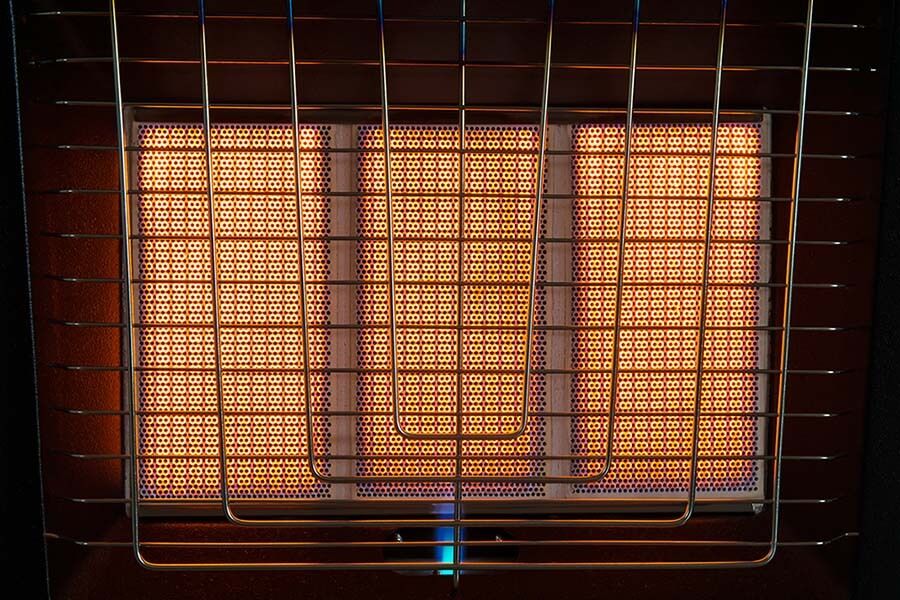Thanks to the advent of technology, modern homes are fortunate enough to have advanced devices that help keep them comfortable all year-round. With a good home heating, ventilation, and air conditioning system at your disposal, you can easily keep your home warm during the winter and cool during the sweltering summer.
Every home requires a functional, efficient heating unit, especially during winter. However, to ensure your heater works in tip-top condition, your heater needs to be serviced at least once every year, preferably before wintertime knocks on the door. Having your heater tuned up routinely not only help to prevent it from potential damage, but will also keep your monthly energy bills relatively lower.
Without adequate heater service and maintenance, your heater will certainly develop problems. If you didn’t know, a furnace is equipped with endless pipes, valves as well as moving components that all require regular servicing and maintenance to function optimally. One of the most common diagnostic symptoms of a poorly maintained heater is the production of strange smells. And while some of these odors are pretty harmless, a majority might be a telltale sign that your heater is in dire need of a professional checkup.
So, today in this post, we are going to tell you what some of these smells may point to. So, peruse the article and get to know.
- Electrical burning: An electrical scent is usually a huge cause of concern. Even though most furnaces are designed to auto-shutoff if they sense any sign of overheating, this important feature may sometimes fail. If your heater produces this type of smell, grates on the unit as well as clogged filters are the likely causes. Other potential causes could be a burnt circuit board, frayed cables, or any other urgent electrical issues that may need immediate professional attention.
- Gunpowder smell: If your heater produces a gunpowder-like smell, it could be an indication of a fried fan motor or circuit board. This is equally a complex problem that should only be handled by a qualified heater repair technician.
- Smell of rotten cabbage or eggs: In their natural state, propane and natural gas are colorless and odorless and this makes them almost impossible to detect. For this particular reason, suppliers of natural gas and propane add methyl mercaptan, an organic compound, to their gases before distribution. Even though methyl mercaptan is equally colorless, it creates a very strong odor similar to either rotten cabbage and eggs. So, if there are no rotten eggs in your home, the only time you should smell the presence of such a smell is when there is a gas leak in your home. And when this occurs, you should act fast, shut the furnace off, exit your home as soon as possible and call your local heater repair professional.
- Burning plastic odor: Like electrical odors that indicate the damage or failure of electrical components, the smell of plastic burns usually indicates the damage as well as the failure of a plastic component in your heater. It is also important to note that heat-damaged circuit boards can produce a similar smell.
- Oily odor: If you are using an oil-powered heater, it can occasionally produce nauseating oily odor. If you spilled any oil while refueling your heater, for instance, the odor may linger for a few days before it eventually dissipates. However, if the smell is through oil leaks, you will need to call your local heater repair expert to diagnose the problem.
- Musty, moldy smell: Your heater will always dissipate this type of smell when there is moisture buildup within it. Simply put, it signifies the presence of moisture in your unit. If not detected early enough, this moisture can potentially find its way into your unit’s air ducts and cause mold growth. And because of the serious respiratory health concerns that mold presents, you would want to contact your heater service expert as soon as possible.
- Burnt dust: This is usually felt when you use your heater for the first after a period of dormancy. However, this doesn’t always signify a serious problem. Just as unused devices can collect dust, your heater gathers dust and debris layers when it remains unused. This debris and dust will eventually begin to burn when you finally turn on your heater, producing a burnt dust smell. Thankfully, this smell usually disappears after a few heating cycles.
These are arguably the most common types of heater smells that homeowners will occasionally experience. As always, you should never attempt to solve anything on your own if you aren’t a heater repair expert. Contact our Heating Experts for assistance on 1300 100 040.
